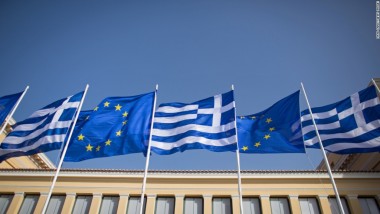
The Greek Tragedy continues
Our friends at CITI hosted a conference call on Monday with Citi Chief Economist Willem Buiter joined by George Papandreou, the former Greek Prime Minister; Filippos Sachinidis, the former Greek Finance Minister; Jose Barroso, the former President of the European Commission and the former Prime Minister of Portugal.
Key points from the Greek tragedy follow:
1) There is a wide belief that due to parliament giving Prime Minister Tsipras full negotiating power in Brussels the package will pass through parliament by Wednesday. He has got widespread support from multiple parties within the Greek parliament.
2) George Papandreou all but ruled out a snap election as it won’t be easy in the middle of the summer and Tsipras will want to be in a better position than he is now before going to elections.
3) The Merkel waiting game has shown its benefits. We saw very typical behaviour from her and the German Government as they didn’t panic and took a tough stance.
4) Willem Buiter believes that Tsipras has signed up to a deal that is much worse than before and believes it has too much austerity and will cause years of recession. He is extremely concerned that this will not work. George Papandreou believes the terms Tsipras has now signed up to are very draconian. While there is widespread relief in Greece that a deal has been reached, Tsipras has managed to lose a lot of trust and credibility in the process.
To learn more about our funds, please click here, or contact me, David Buckland, on 02 8046 5000 or at dbuckland@montinvest.com.
xiao fang xu
:
http://www.project-syndicate.org/commentary/the-euro–monetary-unity-to-political-disunity
Now no one in their right mind could think that lending another $96 billion to an utterly bankrupt country makes any sense whatsoever.
Kick the can
let’s pretend all is good
Aaron Somner
:
David I noticed you did not offer your opinion on what this event is all about. Allow me to offer mine. The problem is not with Greece. The problem is the structure of the Euro. When Greece entered the Euro the Euro was at 80 cents vs the US dollar. By 2007 it was at 1 dollar 60. A doubling of their effective debt. When a country in the Euro gets into trouble the variable is now their interest rate where before it used to be the currency. Is it any wonder they are in trouble. At no point will the Eurozone admit they should have consolidated the debts from the start. This is a problem that the Eurozone have created themselves. Unfortunately the Euro is a ticking time bomb. This is the same mistake as the treaty of Versailles, which led to the 1931 Sovereign debt crisis. They are strip mining the country in order to pay the bond holder.
David Buckland
:
Thank you Aaron,
We have touched on this a few times, most recently here and here.
http://rogermontgomery.com/eastern-europe-the-epicenter-of-our-next-crisis/
http://rogermontgomery.com/emerging-markets-external-debt-and-currency-decline-watch-this-space/